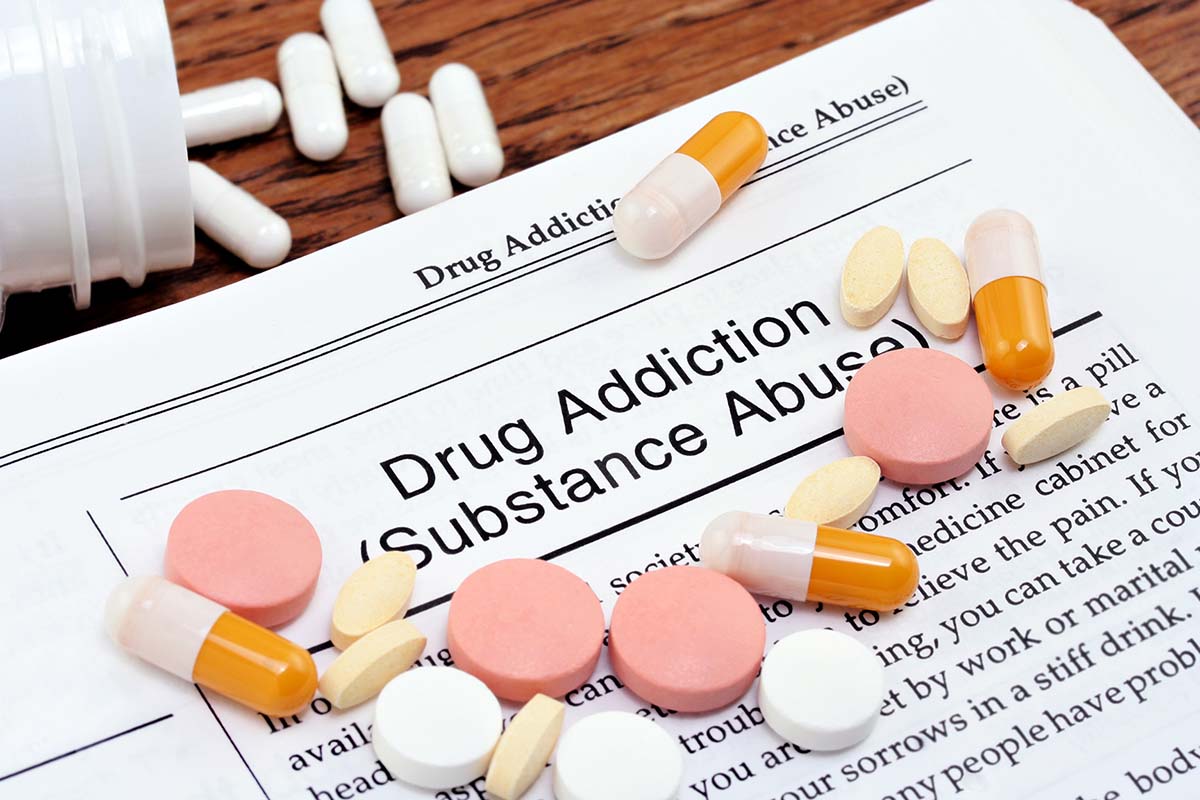Chemical Abuse Rehabilitation: Pathways to Healing and Recuperation
Drug abuse rehab plays an important duty in helping individuals get over the battles of addiction and rebuild their lives. Whether a person is battling alcohol dependency, medicine addiction, or prescription misuse, rehab facilities provide an organized atmosphere for healing-- physically, mentally, and psychologically. In today's globe, where the difficulties of dependency prevail, recognizing what rehab involves, its value, and the types of services readily available can make a substantial distinction in one's trip to recuperation.
Recognizing Substance Abuse and the Demand for Recovery
Substance Abuse affects numerous people worldwide, crossing age, sex, and socioeconomic lines. It is an intricate condition defined by the uncontrollable usage of damaging substances in spite of negative consequences. Alcohol and drugs can alter brain chemistry, leading to physical dependancy and psychological instability. Over time, dependency takes control of a person's actions, capacity, and judgment to work typically in society. Lots of individuals that come under this cycle frequently find it difficult to stop without specialist assistance.
Due to the fact that addiction is not merely an absence of determination-- it's a disease that impacts the mind and body, Rehabilitation ends up being important. Rehabilitation facilities provide evidence-based therapies that target the source of Substance Abuse as opposed to just the symptoms. These programs supply structured settings that urge recovery through clinical detoxing, therapy, and skill-building. The utmost objective is to help people develop dealing mechanisms and lead drug-free, effective lives.
The demand for rehabilitation typically emerges when a person can no more manage daily duties or preserve relationships due to Substance use. Family problems, work efficiency issues, or health difficulties are commonly the initial indicators that professional help is required. By seeking treatment early, people can protect against long-term damage to their physical health and emotional health.
The Importance important Abuse Rehabilitation
Rehab is not merely regarding stopping medicines or alcohol-- it has to do with transformation. The importance of rehab lies in its all natural method to recovery, concentrating on the individual in its entirety rather than just the dependency. Many people get in rehabilitation at their floor, usually feeling hopeless and isolated. The organized setting of a rehab facility provides them with the tools and support to discover purpose and self-regard.

Among the essential advantages of rehabilitation is the clinical supervision supplied throughout cleansing. Withdrawal signs and symptoms can be intense and, in some cases, dangerous. Professionals monitor the procedure, guaranteeing security and comfort while lowering the threats of regression. Beyond physical healing, rehab additionally attends to the mental elements of dependency via treatment and counseling. Cognitive-behavioral therapy (CBT), motivational interviewing, and group sessions help individuals comprehend their triggers and learn healthy and balanced coping devices.
Furthermore, rehab supplies long-term advantages that prolong beyond the person. Family members restore security, partnerships are healed, and areas benefit when people reintegrate as healthy, adding members. Drug abuse not just hurts the person entailed however also influences enjoyed ones. Recovery aids break this cycle, cultivating healthier settings for every person included. Basically, rehabilitation is a financial investment in life, health and wellness, and the future.
Provider Offered in Substance Abuse Rehab Centers
Rehabilitation facilities supply a wide variety of solutions customized to the special needs of each person. The goal is to create a tailored treatment plan that attends to physical, psychological, and social elements of healing. The very first stage of the majority of programs is medical cleansing, where the body is cleansed of hazardous substances under professional guidance. Detoxification assists manage withdrawal signs securely, paving the means for more restorative interventions.
Following detoxification, people usually relocate right into treatment and therapy sessions, which form the core of addiction treatment. Private treatment permits customers to function individually with licensed therapists to uncover underlying problems, such as trauma or mental health and wellness conditions that may have contributed to addiction. Group therapy, on the other hand, promotes peer assistance and liability. Sharing experiences with others that have actually faced comparable battles aids people really feel comprehended and inspired.
:max_bytes(150000):strip_icc()/the-effects-of-drug-addiction-5214343-Final-63ee57687f0a4daa90b104897ad6579e.jpg)
Kinds Of Rehabilitation Programs Available
Not all rehab programs coincide. Relying on the seriousness of dependency, individual preferences, and life conditions, individuals can select from numerous kinds of recovery programs. One of the most typical are inpatient, outpatient, and residential treatment programs. Each deals distinct advantages made to deal with different degrees of treatment.
Inpatient rehab programs call for people to stay at the treatment facility full time, typically for 30, 60, or 90 days. This atmosphere supplies continuous medical and emotional support, eliminating diversions and lures from day-to-day life. Inpatient care is perfect for those with serious dependencies or co-occurring psychological wellness problems, as it makes certain comprehensive supervision and intensive therapy.
Outpatient rehab programs provide more flexibility for individuals who can not dedicate to full time treatment. Participants attend therapy sessions several times a week while continuing to live in your home or preserve job duties. Outpatient care is best matched for those with mild to modest addictions or for those transitioning from inpatient treatment. It allows individuals to apply coping methods in real-world setups while still getting expert assistance.
There are also specialized rehab programs that accommodate details teams, such as experts, females, or teenagers. Some centers integrate faith-based methods, while others concentrate on alternative healing that incorporates physical wellness and mindfulness techniques (addiction treatment). Furthermore, deluxe rehab facilities supply high-end services and exclusive holiday accommodations for those looking for comfort together with care. Regardless of kind, the key purpose stays the very same-- to direct people toward continual recovery
Typical Factors People Need Rehabilitation
Addiction does not occur overnight, neither does it have a single reason. Individuals seek rehab for numerous factors, commonly tied to both personal and ecological aspects. Among one of the most common factors is persistent stress and injury. People who have actually experienced physical or emotional trauma commonly transform to compounds as a coping system. With time, this behavior becomes habitual, causing dependence. Recovery helps these individuals process unresolved pain with treatment and psychological assistance.
An additional substantial factor is psychological health conditions, such as depression, anxiety, or bipolar affective disorder. When mental disorder goes unattended, people might self-medicate making use of medicines or alcohol to leave their psychological distress. This dual-diagnosis situation needs specific advice treatment that deals with both addiction and mental wellness concurrently. Rehabilitation centers geared up with psychiatric treatment can aid maintain these conditions through medication monitoring and treatment.
Social pressure and environmental impact additionally play a major role basically Abuse. Peer stress, household dysfunction, or direct exposure to addicting substances from a young age can make people a lot more prone to addiction. For some, dependency starts innocently-- with prescription medicine following an injury or surgery-- yet intensifies into abuse. Rehabilitation provides a structured and secure path to break cost-free from these cycles. It equips people to recognize triggers, construct much healthier routines, and re-establish control over their lives.
The Journey of Recuperation and Life After Rehab
Recuperation doesn't finish the day a person finishes a rehab program-- it's a long-lasting process of development and self-discovery. Life after rehab comes with obstacles, yet also possibilities for renewal. Several individuals describe it as a "second opportunity" to live with clearness, gratitude, and function. The great post to read lessons found out during treatment, such as self-control, emotional understanding, and strength, come to be the foundation for a meeting life complimentary from dependency.
After leaving rehab, individuals are urged to join aftercare programs and assistance networks. Regular presence in group meetings or treatment sessions aids maintain responsibility and prevents relapse. Sober living atmospheres can likewise offer transitional housing for those that require added structure before fully reintegrating into society - dual diagnosis rehab NJ. Preserving a strong support system of household, good friends, and peers is crucial Clicking Here for long-term success
Healing opens the door to individual development. Several people go after education and learning, new professions, or volunteer work as component of their recovery journey. They learn to take care of stress and anxiety via healthy and balanced outlets such as exercise, reflection, or innovative hobbies. While regressions can take place, they are seen not as failings however as chances to strengthen one's dedication to sobriety. Ultimately, chemical abuse rehabilitation functions as the foundation for a life of flexibility, function, and balance.

Verdict: Selecting Hope and Recovery
Chemical abuse rehab stands for greater than a therapy-- it symbolizes hope. It is a bridge in between anguish and revival, using people the opportunity to redeem their lives from addiction's grasp. With professional care, structured treatment, and compassionate assistance, individuals can find their strength and function. Understanding the solutions provided, the kinds of rehabilitation available, the relevance of rehab, and the reasons people require it provides clearness for those looking for help or supporting liked ones on their journey.
Selecting rehabilitation is not a sign of weak point but of guts-- the nerve to confront pain, restore identification, and embrace a brighter future. Recovery is possible, and with the ideal advice, every step toward healing brings a person better to lasting flexibility and tranquility.
Substance Abuse rehabilitation plays a vital function in assisting people get over the battles of dependency and rebuild their lives. The need for rehab typically emerges when a person can no much longer take care of day-to-day responsibilities or maintain relationships due to Substance use. Inpatient rehabilitation programs call for people to remain at the therapy center permanent, typically for 30, 60, or 90 days. Outpatient rehab programs offer more flexibility for individuals that can not devote to permanent therapy. After leaving rehab, individuals are urged to participate in aftercare programs and support networks.